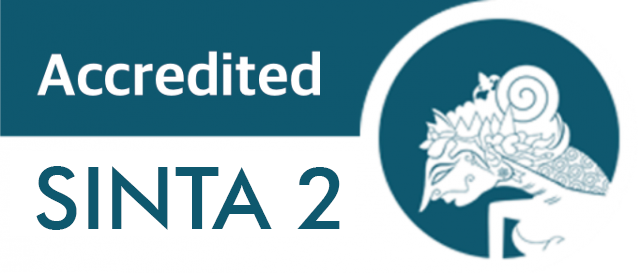Analysis of Students' Computational Thinking Processes in Merdeka Curriculum Differentiation Learning using The Open-Ended Problem Based Learning Model
DOI:
https://doi.org/10.18326/hipotenusa.v6i2.1899Kata Kunci:
differentiated learning, open-ended problem based learning, computational thinkingAbstrak
This research aims to evaluate the effect of implementing differentiated learning using the Open-Ended Problem Based Learning model on students' computational thinking abilities at the Batang State Tsanawiyah Madrasah. The research used mixed methods with a concurrent embedded model, which combines quantitative and qualitative approaches. Data was collected through computational thinking ability tests, interviews, and observations during the research period. The research results show a significant increase in students' computational thinking abilities after implementing differentiated learning. Quantitative data analysis shows significant differences between before and after learning, with visible improvements in aspects of computational thinking capabilities such as abstraction, algorithms, decomposition, and pattern recognition. These findings show that differentiated learning using the Open-Ended Problem Based Learning model can improve students' abilities in computational thinking and solving problems effectively.
Referensi
Aho, A. V. (2012). Computation and computational thinking. Computer Journal, 55(7), 833–835. https://doi.org/10.1093/comjnl/bxs074
Alreshidi, N. A. K., & Lally, V. (2024). The effectiveness of training teachers in problem-based learning implementation on students’ outcomes: a mixed-method study. Humanities and Social Sciences Communications, 11(1). https://doi.org/10.1057/s41599-024-03638-6
Anwar, S. (2014). Processing Teaching Materials. Bandung: UPI.
Arumningsih, E., Setyawati, R. D., & Murtianto., Y. H. (2023). Students’ Creative Thinking Ability in Solving Open-Ended Problems Based on Personality Type. Hipotenusa: Journal of Mathematical Society, 5(2), 121–131. https://doi.org/https://doi.org/10.18326/hipotenusa.v5i2.280
Fitri, P. R., Sukirwan, S., & Jaenudin. (2022). Application of a Realistic Mathematics Education Approach to Improve Student Learning Outcomes on Set Material Using 17an Video Games. Wilangan: Journal of Innovation and Research in Mathematics Education, 3(3), 188.
Fitriani, A. (2020). The Influence of the Open-Ended Approach on Students’ Creative Thinking Ability with the Help of Interactive Videos on Circle Material for Class VIII MTs N Mranggen Demak 2014/2015. Academic Year. Journal of Didactics, 4(2).
Fitriawan, D., Siregar, N., & Sulistyowati., E. (2023). Learning Design for Combinatorics with Realistic Mathematics Education (RME) Approach. Journal of Mathematical Society. https://doi.org/https://doi.org/10.18326/hipotenusa.v5i2.290
Grover, S., & Pea, R. (2013). Computational Thinking in K-12: A Review of the State of the Field. Educational Researcher, 42(1), 38–43. https://doi.org/10.3102/0013189X12463051
Gusteti, M. ., & Neviyarni, N. (2022). Differentiated Learning in Mathematics Learning in the Independent Curriculum. Lebesgue Journal: Scientific Journal of Mathematics, Mathematics and Statistics Education. https://doi.org/https://doi.org/10.46306/lb.v3i3.180
Haqq, A. A. (2016). Application of Challenge Based Learning in Efforts to Improve High School Students’ Understanding of Mathematical Concepts. EduMa, 5(2), 70-76.
Israel-Fishelson, R., & Hershkovitz, A. (2020). Persistence in a Game-Based Learning Environment: The Case of Elementary School Students Learning Computational Thinking. Journal of Educational Computing Research, 58(5), 891–918. https://doi.org/10.1177/0735633119887187
Kusuma, A. C., Adibah, A., Azhar, G. Al, & Budi, E. S. (2023). Implementation of Problem Based Learning Assisted by Learning Management System to Improve Students’ Mathematical Communication Skills. Journal of Mathematical Society, 5(2),. https://doi.org/https://doi.org/10.18326/hipotenusa.v5i2.300
Lya, S., Pramesti, D., Rini, J., & Ferdianto, Y. (2024). CIRCLE: JURNAL PENDIDIKAN MATEMATIKA Pengembangan E-Modul Berbasis Ethno-STEM pada Materi Geometri. 4(1), 42–51.
Maharani, S., Nusantara, T., As’ari, A. R., & Qohar, A. (2020). Computational Thinking Problem Solving in the 21st Century. Madiun: Wade Group.
Marlina. (2019). Guide to Implementing Differentiated Learning Models in Inclusive Schools.
Marlina. (2020). Differentiated Learning Strategies in Inclusive Schools.
Moreno-Palma, N., Hinojo-Lucena, F. J., Romero-Rodríguez, J. M., Cáceres-Reche, M. P., An, O., & Of, H. (2024). Effectiveness of Problem-Based Learning in the Unplugged Computational Thinking of University Students. Education Sciences, 14(8210), 1–31. https://doi.org/10.3390/educsci14070693
Mukhibin, A., Herman, T., Aulia, L.S., & Firdaus, H. (2024). Integrating Computational Thinking in STEM Learning: An Effort to Improve Students’ Problem- Solving Skills. Mosharofa: Jurnal Pendidikan Matematika, 13 (1).
OECD. (2023). PISA 2022 Results (Volume I). https://doi.org/https://doi.org/https://doi.org/10.1787/53f23881-en
Pratiwi, G. L. & Akbar, B. (2022). The Influence of the Problem Based Learning Model on the Computational Thinking Mathematical Skills of Class IV Students at SDN Kebon Bawang 03 Jakarta. Didactics: PGSD FKIP Mandiri University Scientific Journal, Vol 08 Number 1.
Purba, M., Purnamasari, N., Soetantyo, S., Suwarna, I. R., & Susanti, E. I. (2021). Principles of Differentiated Learning Development (Differential Instruction).
Salsabila, A., & Yahfizham. (2024). Studi Literatur: Analisis Berpikir Komputasi pada Guru dan Siswa dalam Konteks Implementasi Kurikulum Merdeka. Bilangan: Jurnal Ilmiah Matematika, Kebumian, Dan Angkasa. 2 (3).
Sugiyono. (2016). Quantitative, Qualitative and R&D Research Methods, Cet. 26. Bandung: Alfabeta.
Syamsidah & Suryani, H. (2012). Problem Based Learning Model Book. In Deepublish.
Taufiq, M. (2014). The Influence of the Open Ended Approach on Learning Motivation and Mathematical Problem Solving Ability of SMAN 5 Mataram Students. Journal of Agri Science, No. 1, p. 64.
Wahyuni, S., Yati, M., & Fadila, A. (2020). Pengembangan Modul Matematika Berbasis REACT terhadap Kemampuan Komunikasi Matematis Peserta Didik. Jambura Journal of Mathematics Education, 1(1), 1–12.
Wahyuningsih, E. (2021). Mathematics Learning Using a Problem Based Learning Approach in Implementing the 2013 Curriculum. Journal of Mathematics Learning Development (JPPM), 1(2), 69–87.
Wanelly, W. & A. F. (2020). The Influence of the Open-Ended Approach and Student Learning Style on Mathematical Creative Thinking Ability. Basicedu Journal, No. 3, IV, p.526.
Widayanti, R., & Nur’aini, K. D. (2020). Application of the Problem Based Learning Model to Improve Mathematics Learning Achievement and Student Activities. MATHEMA: Journal of Mathematics Education, 2(1), 12–23.
Wing, J. M. (2006). Computational thinking. Commun. ACM, 49(3), 33–35. https://doi.org/10.1145/1118178.1118215
Wulandari, A. S. (2022). Literature Review: Differentiated Approach to Learning Solutions in Diversity. Journal of Mathematics and Natural Sciences Education, Vol 12, No 3, 682-689.
Yunianto, wahid;El-Kasti, Houssam; Lavicza, Zsolt; Prahmana, R. (2024). a B Ehavioral a Pproach To L Earning in E Conomics. 23(8210), 1–31. https://doi.org/https://doi.org/10.28945/5365
Unduhan
Diterbitkan
Cara Mengutip
Terbitan
Bagian
Lisensi
Hak Cipta (c) 2024 Santika Lya Diah Pramesti, Heni Lilia Dewi, Norma Alias

Artikel ini berlisensiCreative Commons Attribution-NonCommercial-ShareAlike 4.0 International License.

This work is licensed under a Creative Commons Attribution-ShareAlike 4.0 International License.





